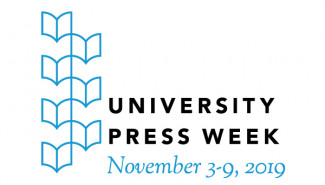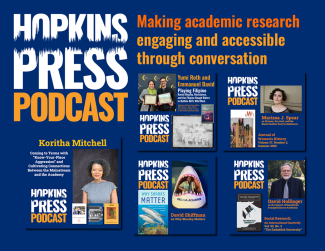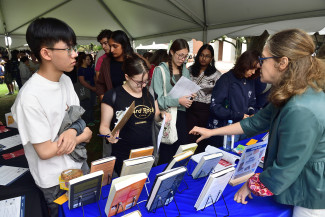
Johns Hopkins UniversityEst. 1876
America’s First Research University
Read. Think. Act.

I’m at the annual meeting of the American Public Health Association. Every year, I come to this meeting and talk to people who are, in a sense, trying to save the world. Climate change, gun violence, the opioid crisis—there’s almost no terrible news that I won’t hear here. But the spirit here is one of strong, practiced, and even professional optimism. These people believe that if they work hard enough they can change things for the better. So what’s the role of a university press editor when it comes to problems with a national or global scale?
I read articles, books, tweets, the back of cereal boxes, and then I come to places like this and I think. Sometimes things fit together slowly, and others it happens at 4G speeds. When I came to Johns Hopkins University Press a couple of years ago, it was just a month before Freddie Gray’s death in police custody and the uprising that followed. The city was thrown into turmoil that was as strong in our minds as it was on the streets. One day I read some words on Twitter that focused on why this happened in Baltimore, and all of the reasons that a tragedy like that was all but inevitable. In a free-flowing stream of tweets, a local professor criticized, explained, and offered ideas that could give our city hope of a more just future. His ideas stuck with me and as I drove through Baltimore that night I felt like he had drawn back a curtain so that I could see all of the machinery of the city and how it really worked. I reached out to him to ask if he thought those few words, measured in chunks of 140 characters, could be the sketchy outline of a book. Because tweets are fast, but ephemeral, and books can travel great distances and wait patiently. That was my action—a book, I often tell my authors, is a way for you to let other people stand on your shoulders for a better view. My hope is that after reading, thinking, and acting to get these books into the world, the people who read them will have a chance to do the same. And some of those people are in positions to make all the difference.
This might be a terribly saccharine metaphor, but I see our national conversations as a stream, and every book we publish as a stone we throw into that stream. Some may be larger than others, but it is the work of many people over years, throwing stones into a particular place in the stream (maybe it’s the flow of the opioid crisis or of racism in America) that will ultimately change its course. And if we give people new things to think, they will have new ideas about how to act.
Robin W. Coleman is acquisitions editor at Johns Hopkins University Press, acquiring books in public health and health policy. This post is part of the 2019 University Press Week blog tour. This year's theme is "Read. Think. Act."



